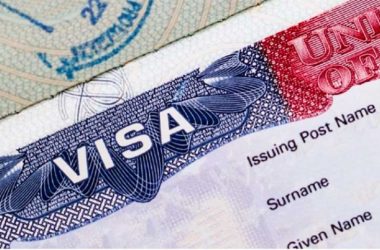
EMERGENCE of CARICOM as an awoken force in regional affairs is worrying Washington, which has gone into overdrive to undermine what it considers a rude challenge by today’s Caribbean leaders to its traditional hegemony at the Organization of American States (OAS).
In less than a year, President Donald Trump and US Secretary of State Mike Pompeo met twice with Caribbean leaders in Florida and Jamaica through selective invitations loudly deemed divisive by CARICOM Chairman Mia Mottley and other leaders.
PM Mottley will next week Monday and Tuesday (February 17 and 18) host a crucial CARICOM Summit in Bridgetown where the USA, UK and Canada will be lobbying for support for their latest respective regional and international geopolitical excursions and incursions.
The USA will be seeking reassurances of Caribbean support promised to Pompeo in January in Kingston for US-backed OAS Secretary General Luis Almagro’s re-election when his term ends next month.
The UK will be lobbying support for its demand for early resignation of former UK Attorney General Baroness Scotland as Secretary General of The Commonwealth.
Canada’s Prime Minister Justin Trudeau will hope to so charm Chairman Mottley and fellow leaders as to win full backing for Toronto’s bid to serve on the United Nations Security Council in 2021 and 2022.
These are three heavy loads for the region’s leaders to shoulder and launder next week, which will once again test their mettle.
Already on record as united in opposition to external interference in Venezuela but divided when and where votes matter most, CARICOM leaders will again be forced to choose between Venezuelan President Nicolas Maduro and US-backed opposition leader Juan Guaido.
But even following his much-publicized recent European tour, Guaido’s political stock is less valuable at home today than a year ago when he declared himself ‘Interim President’ with US backing and support from 51 of the 193 member-states of the UN.
On the other hand, China, Russia, Turkey and many other nations have quietly come to Venezuela’s rescue over time in the face of the over 160 sanctions imposed by the US since 2017.
Nations and private sector interests (including Americans) that stand to lose most from the US sanctions against the country with the world’s largest oil reserves have found innovative ways to help Venezuela beat the heat and the country’s finances has been able to survive – and to start reviving.
Trump’s vengeful impatience ahead of his November re-election bid is already being reflected in US policy, starting with new (and added) post-impeachment sanctions against both Venezuela and Cuba.
Washington’s priority now is to ensure CARICOM support for Almagro over the preferred Caribbean candidate, Ecuadorean Maria Ferdinanda Espinosa, nominated by Antigua & Barbuda and St Vincent and the Grenadines.
Senora Espinosa, a respected diplomat who recently served as President of the UN General Assembly, if victorious, will be the first woman to head the OAS.
But with the US being by far the largest contributor to the OAS’ coffers and successive administrations — bar none — treating the Hemispheric body as an institutional facilitator of American geopolitical and security interests in a region it considers and treats as ‘America’s Backyard’ under the age-old Monroe Doctrine, Washington can be expected to continue using the ‘Carrot and Stick’ approach of treating OAS governments as either ‘friends’ or ‘enemies’.
CARICOM leaders will therefore be reminded Monday by whoever delivers President Trump’s message of exactly what’s on the table when the vote (for OAS Secretary General) comes up in March: either a big stick or a few carrots – and with Washington holding all the trump cards to its chest.
CARICOM leaders will also hear next week from both the beleaguered Baroness Scotland and the post-Brexit Boris Johnson envoy tasked to press the Caribbean to help Britain force her out of office as Secretary General of the Commonwealth.
Trudeau will cite Canada’s historical friendship with the region and his apparent sudden realization that ‘over a million people of Caribbean descent live’ (and vote) in Canada.
So, with such a heavy wash load, how will the leaders respond to the real challenge of putting long-term regional unity and interests above short-term national priorities more associated with re-election than delivering on the promises they were elected to keep?
Will the CARICOM Chairman and other Heads with their heads screwed on differently be able to convince the Doubting Thomases that Caribbean interests far exceed and supersede that of Uncle Sam or Uncle Tom?
Haiti having joined Saint Lucia in the Canada-led ‘Lima Group’, Jamaica again being accused of playing a spoiler role (like when it broke-up the West Indies Federation nearly six decades ago), Prime Minister Andrew Holness being treated as Washington’s chosen CARICOM Leader, will the seven states that met Pompeo in Kingston ultimately together drive a deadly stake into CARICOM’s bleeding heart in March?
The answers will be only in the leaders’ heads and hands when they choir-like congregate in Bridgetown to sing the CARICOM national anthem from the same hymn sheet on Monday.
Will they sing to and for, or to-and-fro over the heads of both the faithful and the faithless?
Sunday church bells will have rung across Barbados 24 hours before they pool to pull their heads together in the face of challenges and opportunities at the Lloyd Erskine Sandiford Center, less than a month after observance of Bajan Father of the Nation Errol Barrow’s centenary in January.
But while they circle the table under Mia Mottley’s chairmanship and in the shadows of both Sandiford and Barrow, the question ringing loudest across the entire Caribbean on Monday and Tuesday will still be: For whom will the bells toll in Bridgetown?
The answer may not come in Barbados, but it certainly will in Washington in March, where, once again, whatever the outcome of the OAS vote, the ultimate lesson learned will be that VOTES ALWAYS MATTER!













